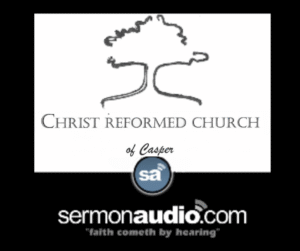1 Let thy blood in mercy poured,
Let thy gracious body broken,
Be to me, O gracious Lord,
Of thy boundless love the token:
Refrain:
Thou didst give thyself for me,
Now I give myself to thee.
2 Thou didst die that I might live;
Blessed Lord, thou cam’st to save me;
All that love of God could give
Jesus by his sorrows gave me: (Refrain)
3 By the thorns that crowned thy brow,
By the spear wound and the nailing,
By the pain and death, I now
Claim, O Christ, thy love unfailing: (Refrain)
4 Wilt thou own the gift I bring?
All my penitence I give thee;
Thou art my exalted King,
Of thy matchless love forgive me: (Refrain)
Let Thy Blood in Mercy Poured
This hymn is an ancient Greek communion hymn, often sung in preparation to receive the Eucharist. It was unknown in the west until translated by John Brownlie, a Scottish Presbyterian, who published it in 1910.
A “token”, mentioned in the first verse, is something that represents, symbolizes or points to something else. In the first verse, it is the body and blood of Christ, shed on the cross for sinners, which is that token. How could the blood of Christ be merely a token? It was the demonstration of the “boundless love” that Christ has for His people. More than His suffering on the cross alone, as if that were not enough, He gives His whole life for us.
The “Great Exchange” is referenced in the second verse, that Jesus died so that we might live. It is right for the believer to personalize the work of Christ here just as the hymn does, that Jesus came not just to save sinners in the abstract, but that He came to save me individually. Jesus had me personally in mind when He went to the cross, not in the wishful thinking of hoping that someone might benefit from what He did, but with the specific intent of rescuing me from my ruined condition, an intent which He accomplished.
And what a thought expressed in the second half of verse two- Jesus, by His suffering and sorrows, gave me “all the love of God”. Nothing is held back! Every good thing conceivable for us as human beings is given to us in Christ, through His death. “He who did not spare His own Son, but delivered Him up for us all, how shall He not with Him also freely give us all things? (Rom 8:32 NKJ)” Those sorrows are detailed more in verse three, and those sorrows are the basis for the writer’s “claim” to the love of Christ which never fails. This is a strong statement- that we know, by faith in God’s word, that because of Christ’s suffering and death on our behalf, we have a right to the love of God. Jesus earned it for us and we can now enter boldly before the throne of grace. Jesus’ death worked not just the potential for our salvation, but a firm right to it and assurance of it.
Therefore, the writer presents, as is said in the refrain throughout, himself as a living sacrifice. He dedicates himself to repentance and the service of Christ as his glorious king, a rule and authority always founded on grace and forgiveness.
The hymn as a whole then draws out and explicates its own very simple theme, seen in the refrain- Jesus gave Himself, and all of Himself, to us. The only appropriate response is the giving of ourselves in return to Him. There would be nothing of ourselves to give, nothing but misery and corruption and ruin had not Jesus done what He did, and so all that we give to Him is merely the giving back of the gift of our own lives which He gave us.

